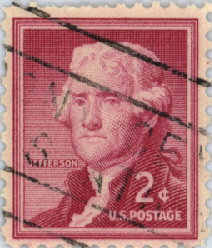
< Previous Page * Next Page >
As the months wore on, the difficulties of prosecuting a war while still part of the empire became more and more patent. No compromise came from England and, on August 23, 1775, King George issued a proclamation declaring the colonies to be in a state of rebellion.
 |
For a map of the USA in 1775 click here
But though the people were now beginning to look with composure upon the idea of independence, there still remained the task of gaining the approval of each colony to a formal declaration of separation. Paine had pointed out that the colonies had "traveled to the summit of inconsistency." They were in full rebellion, had an army and navy of their own and governments that ignored Parliament and King. Not to take the final step was the height of incongruity.
There was common agreement that the Continental Congress should take no such definitive step as independence without first receiving explicit instructions from the colonies to do so. But daily the Congress heard of the establishment of other new extra-legal colonial governments and of delegates being authorized to vote for independence. At the same time, the predominance of radicals in the Congress increased as they extended their correspondence, bolstered weak committees, and fired patriot minds with stirring resolutions. Then finally, on May 10, 1776, a resolution to "cut the Gordian knot" was adopted. Now only a formal declaration was needed. On June 7, Richard Henry Lee of Virginia, pursuant to directions from his state, introduced a resolution declaring in favor of independence, foreign alliances, and American federation. Immediately a committee was appointed to prepare a formal declaration "setting forth the causes which impelled us to this mighty resolution," and a committee of five, headed by Thomas Jefferson, was entrusted with drafting the document.
 |
From the Virginia House of Burgesses, Jefferson, then but thirty-three years old, had come up to Philadelphia with an already established reputation. Though born in the outer circle of Virginia aristocracy, his early life in the democratic back-country had made him the enemy of patrician rights. Riding and shooting and a fondness for the fiddle did not prevent him from satisfying with zeal an enormous thirst for knowledge. There is no question that no more suitable man could have been chosen to draft the great announcement.
It would bring upon America a fierce war, Jefferson knew, but he believed that "the tree of liberty must be refreshed from time to time with the blood of patriots and tyrants!" And though no strong system of government was yet provided to replace that to be destroyed, Jefferson was never a friend to a very energetic government, considering as he did that the only safe depositories of government were the people themselves. Domination by a chosen few he held to be "an abandoned confederacy against the happiness of the mass of the people." In respect to all the great principles formulated in the Declaration, Jefferson felt as did the people for whom he was to write it. He used their languange and their ideas and, as a contemporary said, "Into the monumental act of Independence," he "poured the soul of the continent."
< Previous Page * Next Page >